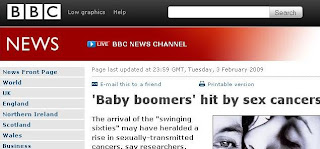A fascinating
study from Japan today where researchers argue that the mass media actually improves health.
The press release was headed "Trust me, I'm a journalist." The implication is that where people have faith in their mass media, they tend to absorb healthy living messages and improve their health.
The findings come from a major survey of 29 Asian countries involving tens of thousands of people, so they should not be sneezed at. In fact you would expect me to agree with them. After all the whole point of a health news service is to ensure everyone is better informed - and that readers and users learn to make sensible judgements about what's good and bad for you.
However there's a question of cause and effect here. Do the people of the Maldives trust the media because it is trustworthy - or because they are a little naive? And what makes the people of Hong Kong cynical? Their history?
So what's not clear from this study is whether it is the
quality of the local media that makes a difference. Or whether it is the willingness of the public to take in the messages disseminated by mass media of all kinds that improves health. After all in Britain the experience is that the "mass media" can do enormous harm as well as good. Measles is currently on the rampage because of a false scare about the MMR vaccine.
You would have thought that a certain amount of informed scepticism would be the right way to treat media messages. Certainly not outright cynicism. Intelligent readership will recognise that every breakthrough, every scare, every bit of new advice may be wrong - but it also may be right. Without the mass media, people might not recognise the dangers of obesity, of poor diet and of smoking. It's no coincidence that the Asian researchers also linked health to educational levels.
Recognising that no single report can be taken in isolation, we try to present a complete news service here.


